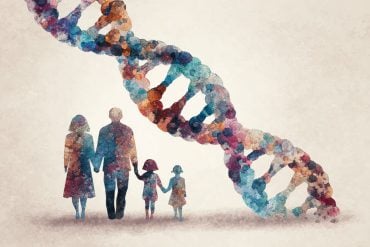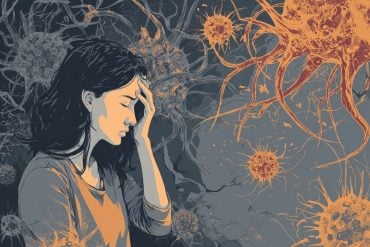Summary: A new study reveals that gender nonconforming play behavior in 7-year-olds is associated with increased behavioral difficulties, including autistic traits in girls and peer relationship issues in boys.
Researchers analyzed data from 718 children in Sweden, finding that masculine play in girls and feminine play in boys were linked to these challenges. While the study highlights potential associations, it emphasizes that nonconforming play does not imply future behavioral issues.
Key Facts:
- Gender nonconforming play in children is linked to increased behavioral difficulties.
- Masculine play in girls is associated with autistic traits; feminine play in boys with peer issues.
- The study emphasizes that gender nonconforming play does not necessarily lead to behavioral problems.
Source: PLOS
Gender nonconformity in 7-year-olds — as measured by levels of gender-conforming play — may be associated with autistic traits and behavioral difficulties in girls, and with peer relationship problems in boys, according to a new study published August 28, 2024 in the open-access journal PLOS ONE by Marlene Stratmann of Karlstad University, Sweden, and colleagues.
Gender nonconformity (GNC) refers to variations in gender expression from societal and cultural gender norms. In childhood, GNC can manifest itself in several ways, including play behavior, peer relationships, clothing, and body language. Childhood GNC does not directly indicate developing gender dysphoria (GD) later in life, although the phenomena are linked.

ecently, studies have begun to establish a high co-occurrence of GNC, GD and autism spectrum disorder. However, most of this work has been carried out in clinical populations with existing diagnoses, which may lead to an overestimation of the associations between GNC and autistic traits and behavioral difficulties in a non-clinical population.
In the new study, researchers analyzed data on 718 children enrolled in the Swedish Environmental Longitudinal, Mother and Child, Asthma and Allergy (SELMA) study for which there were data on play behavior and behavioral outcomes. GNC play behavior was determined using the Preschool Activities Inventory, which includes 12 “feminine” and 12 “masculine” toys, play activities and child characteristics.
In both sexes, higher levels of gender nonconforming play was associated with increased behavioral difficulties. Higher masculine play behavior scores were associated with hyperactivity and inattention in both sexes.
Higher feminine play scores in boys were associated with peer relationship problems, while higher masculine play scores in girls were associated with increased likelihood of autistic traits and behavioral difficulties.
The study involves a sample of children of only one age in a single country, and cannot be used to draw any conclusions as to causation. However, the authors conclude that gender nonconformity may be associated with behavioral challenges and difficulties in both sexes, even in children without any diagnoses.
The authors add: “The results showed that children who played more with toys traditionally considered for the opposite gender had more autistic traits and behavioral problems.
“At the same time it is very important to keep in mind that just because a girl decides to play rougher or a boy plays with dolls, it does not mean that there will be a link to behavioral difficulties or autistic traits in this child.”
About this autism and behavioral neuroscience research news
Author: Hanna Abdallah
Source: PLOS
Contact: Hanna Abdallah – PLOS
Image: The image is credited to Neuroscience News
Original Research: The findings will appear in PLOS ONE






